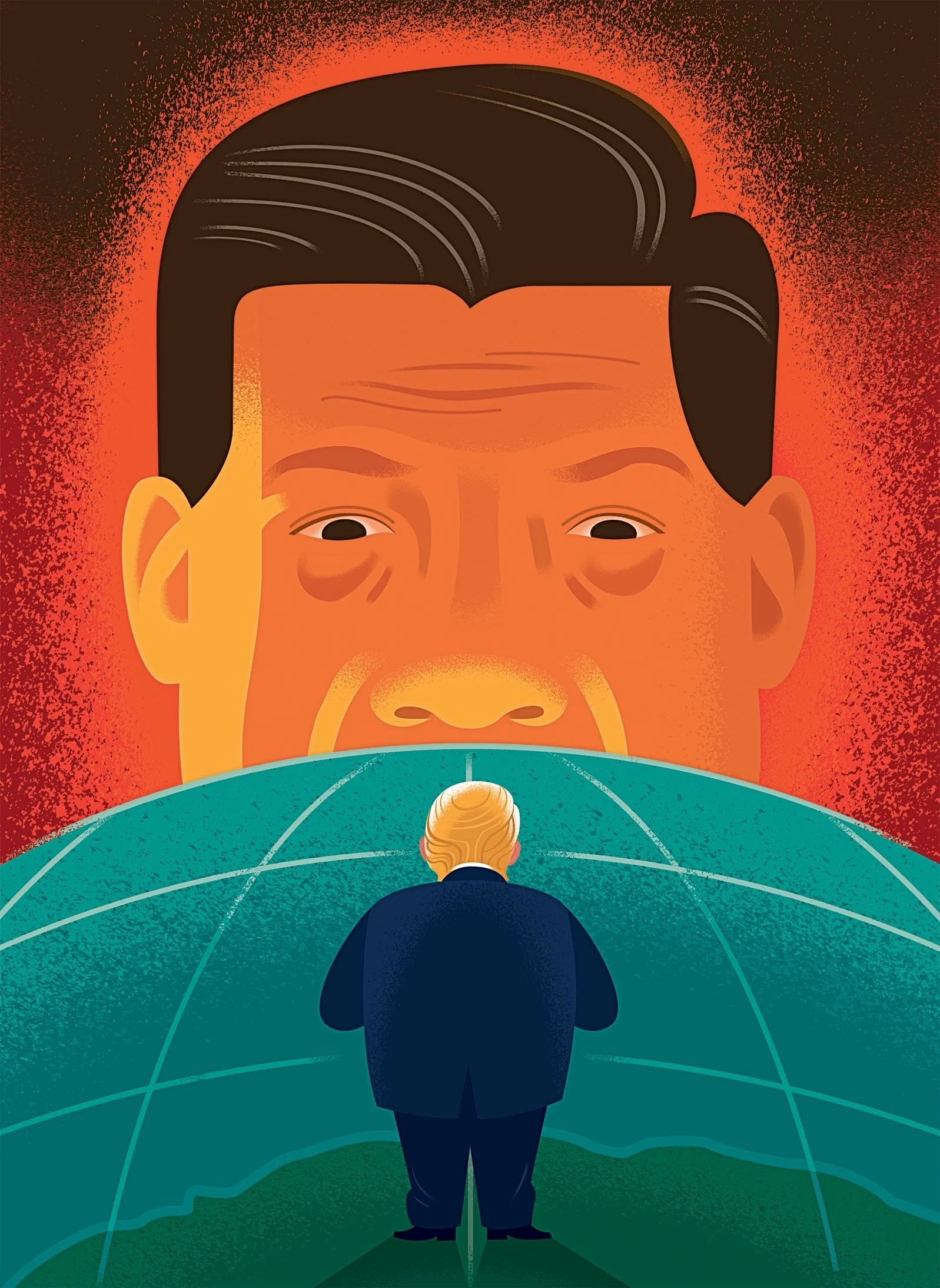"Joni Mitchell’s gift was so enormous that it remade the social space around her. As David Yaffe’s new biography, “Reckless Daughter: A Portrait of Joni Mitchell” (Sarah Crichton Books), suggests, it is no small burden to possess something as valuable as Mitchell’s talent, and it meant that this girl from the Canadian prairie would be in the world, whether she liked it or not. All she needed was her lyrics, preternaturally analytic, wry, and shrewd; her chords, largely self-invented, a kind of calligraphy of the moods; and her voice, which modulates from patter to rue to rhapsody in a single phrase. In concert, she sometimes trained her attention on a single listener in the front row, casting the stranger as the vivid “you” of a song who in real life may have been Sam Shepard, James Taylor, or Leonard Cohen. The best pop music is often preening and shamanic. Mitchell’s is almost always about what two articulate adults mean, or once meant, to each other."
Read More"The poor are still gentrification’s victims, but in this new meaning, the harm is not rent increases and displacement — it’s something psychic, a theft of pride. Unlike housing, poverty is a potentially endless resource: Jeff Bezos could Hoover up all the wealth that exists in the world, then do nothing but drink rainwater collected from the roof of his ’79 Vanagon, and it wouldn’t stop the other seven billion of us from being poor. What this metaphorical gentrification points to instead is dishonesty, carelessness and cluelessness on the part of the privileged when they clomp into unfamiliar territory. When they actually profit from their “discovery” and repackaging of other people’s lifestyles, it’s a dispiriting re-enactment of long-running inequalities. But what seems most galling isn’t that they’re taking dollars off the table. It’s that they’re annoying.
Read More"There are many loose ends in high-tech life. Like unbreachable blister packs or awkward sticky tape, paper jams suggest that imperfection will persist, despite our best efforts. They’re also a quintessential modern problem—a trivial consequence of an otherwise efficient technology that’s been made monumentally annoying by the scale on which that technology has been adopted. Every year, printers get faster, smarter, and cheaper. All the same, jams endure.
Read More"On October 26, 1914, the ship—a hundred-and-forty-foot wooden schooner rechristened the Endurance, after Shackleton’s family motto—set out from Argentina, carrying the men and three lifeboats. Ten days later, the expedition stopped at South Georgia, a glacier-covered island about eleven hundred miles east of Cape Horn, Chile, which Shackleton called “the Gateway to the Antarctic.” The island, deserted except for a few whaling stations, was the explorers’ last contact with civilization.
Read More"Taber is a deeply devoted member of this group. Mention the word “emulator” to him, and he’ll immediately rev up his proselytizing process, complete with anecdotes and analogies designed to convince you of the virtues of original hardware. It’s downright convincing, too — 10 minutes into our first conversation, I was already beginning to question the legitimacy of the $50 Raspberry Pi currently plugged into my TV. But Taber’s concerns aren’t just rooted in his business interests, or a fanboy’s sense of old-school superiority. Rather, he’s upset that future generations will experience the story of video game history through an imperfect lens, a palimpsest of glitched textures."
Read MoreIf Cardi B was the breakout success story of 2017, the fact that her rise happened completely independent of an album promotional cycle says a lot about how fast the music industry is changing. As Chery said, “Bodak Yellow” felt like a moment, and music fans are increasingly choosing to organize their listening around ear-catching moments, in playlists, rather than sifting through hourlong albums to excavate their preferred tracks. The shift may ultimately prove to be what saves the music industry, which is finally enjoying rapid growth after more than a decade in the doldrums. But a revitalized music world powered by playlists might look different from the one that we’re used to. “People don’t treat the album as being the dominant idea of how groups of songs are organized,” says Oliver Wang, a music writer and host of Heat Rocks, a podcast about influential albums. “The playlist has become more dominant, and is now competing for attention.”
Read More"Since 1999, two hundred thousand Americans have died from overdoses related to OxyContin and other prescription opioids. Many addicts, finding prescription painkillers too expensive or too difficult to obtain, have turned to heroin. According to the American Society of Addiction Medicine, four out of five people who try heroin today started with prescription painkillers. The most recent figures from the Centers for Disease Control and Prevention suggest that a hundred and forty-five Americans now die every day from opioid overdoses."
Read More"Wyoming has long been the nation’s coal king. The vast operations of the Powder River Basin produce more coal than all but a handful of states put together. But cheap natural gas has reduced power plants’ dependence on the mineral and, with it, its price and production. Wyoming’s mines are shipping out fewer tons of coal and getting paid less for each of them."
Read More"China has never seen such a moment, when its pursuit of a larger role in the world coincides with America’s pursuit of a smaller one. Ever since the Second World War, the United States has advocated an international order based on a free press and judiciary, human rights, free trade, and protection of the environment. It planted those ideas in the rebuilding of Germany and Japan, and spread them with alliances around the world. In March, 1959, President Eisenhower argued that America’s authority could not rest on military power alone. “We could be the wealthiest and the most mighty nation and still lose the battle of the world if we do not help our world neighbors protect their freedom and advance their social and economic progress,” he said. “It is not the goal of the American people that the United States should be the richest nation in the graveyard of history.”
Read More"I think hip-hop, the culture, is at a crossroads right now, and there's not very much that people who are older than millennials have to identify with. There isn't much that's reaching the mainstream that is hip-hop in the sense that people my age know it as, if that makes any sense. The game has changed. It's different. The standards are different, the criteria that's taken into consideration in determining validity is different. We're at a point in history where lyricism almost comes last in very many regards. So for someone from my school, who has come from the ilk of lyricism being held in far higher regard, it brings a different sort of urgency to every performance. That's what I went into that Flex freestyle with, with that same urgency that I had when I was a young person coming to New York from Philly with very much to prove."
Read More"It was during Kotka’s tenure that the e-Estonian goal reached its fruition. Today, citizens can vote from their laptops and challenge parking tickets from home. They do so through the “once only” policy, which dictates that no single piece of information should be entered twice. Instead of having to “prepare” a loan application, applicants have their data—income, debt, savings—pulled from elsewhere in the system. There’s nothing to fill out in doctors’ waiting rooms, because physicians can access their patients’ medical histories. Estonia’s system is keyed to a chip-I.D. card that reduces typically onerous, integrative processes—such as doing taxes—to quick work. “If a couple in love would like to marry, they still have to visit the government location and express their will,” Andrus Kaarelson, a director at the Estonian Information Systems Authority, says. But, apart from transfers of physical property, such as buying a house, all bureaucratic processes can be done online."
Read More"After the fall of Communism, capitalism came to seem like the modern world’s natural state, like the absence of ideology rather than an ideology itself. The Trump era is radicalizing because it makes the rotten morality behind our inequalities so manifest. It’s not just the occult magic of the market that’s enriching Ivanka Trump’s children while health insurance premiums soar and public school budgets wither. It’s the raw exercise of power by a tiny unaccountable minority that believes in its own superiority. You don’t have to want to abolish capitalism to understand why the prospect is tempting to a generation that’s being robbed."
Read More"Surprise music drops are old news in pop music by now, but Frank made the technique feel like an extension of his persona—insouciant and bored, a rich kid handing you the keys to his Porsche because he never drives it. Taken together, the songs feel like fragments of a whole, perhaps an EP he left in water until it broke apart and spread. They are of a piece, thematically and musically, taking the muted, glimmering murmur of Blonde into newer, freer spaces, with the borders left unshaded, and entire arrangements hinted at with a few sounds. They might not be his most resonant songs, or the most anthemic. But they are the purest distillation yet of his gnomic and enormous talent, which remains allergic to big statements, manifesting itself only in sidelong glances and digressions."
Read More











